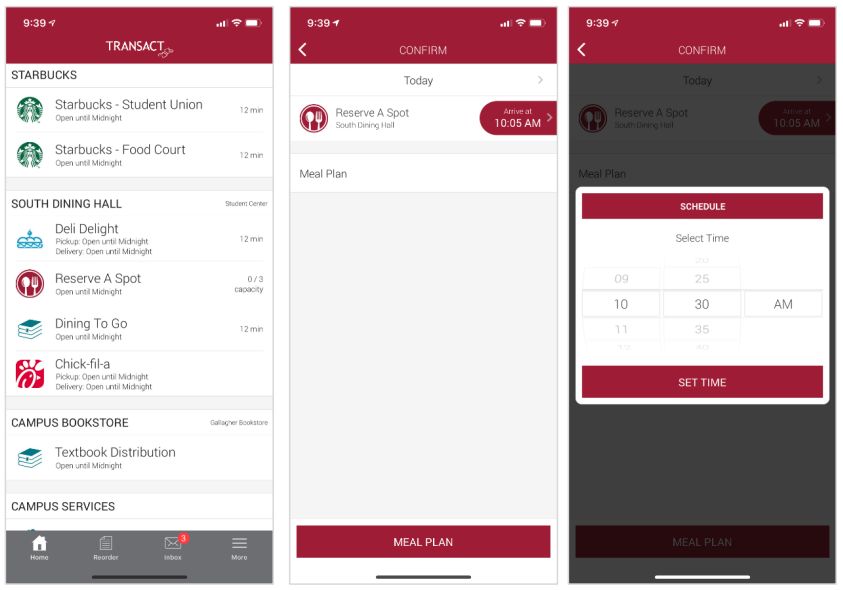Capacity Management Added to Campus Transaction App
- By Dian Schaffhauser
- 11/05/20
An education technology company better known for its payment solutions is promoting functionality within its software to help schools manage the number of students allowed in a specific space. Transact Campus' new capacity management features work through mobile device usage.
Schools can manage windows of time for arrivals and maximum capacity at dining halls, residence halls and other locations. Institutions can also control capacity limits for events, require registration to estimate attendance and stagger arrival slots. Students can schedule reservations for meal time in dining halls, campus move-in course material pickups and appointments.

One school that is using the app for capacity management is Fairleigh Dickinson University. Students are required to download and use the Transact Mobile Ordering app for iOS or Android devices, to access university dining menus and select a time for pickup or seating. In that institution, the app is also being used by off-campus facilities too.
"Our client campuses need new ways to control the flow of their students in dining halls, bookstores, libraries and more," said Erica Bass, Transact vice president of product management, in a press release. "Our capacity management solution is helping campuses manage reservations for dining halls and book pickup and set limits for crowds to help with schools' plans for managing their on-campus students."
About the Author
Dian Schaffhauser is a former senior contributing editor for 1105 Media's education publications THE Journal, Campus Technology and Spaces4Learning.